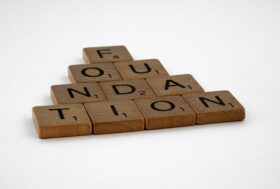Understanding the human mind – a foundation for self-regulated study

Jonathan Firth, School of Education, University of Strathclyde, UK
As they approach the exam years, school students need a practical and well-founded understanding of how to study. This understanding should include knowledge of their own memory processes, together with skills relating to the planning and organisation of their study behaviour.
As Kornell and Bjork (2007, p. 223) put it, learning successfully requires ‘having a reasonably accurate mental model of how learning works, and not being misled by short-term performance’. Such competence can contribute to a learner’s academic success, for there is strong evidence that students who study in more effective ways get better grades (e.g. Hartwig and Dunlosky, 2012).
At the same time, it is widely recognised that memory is counterintuitive; good study habits are unlikely to be the default for most learners. As Kornell and Bjork also note (2007, p. 223), successful learning involves ‘going against certain intuitions and standard practices’.
When it comes to autonomous study, behaviour tends not to be informed by a deep, theory-based understanding of how learning works. Instead, misconceptions about learning are widespread.
This article will explore the reasons behind this situation, and consider what practical steps could be taken to address it. It will review the psychological foundations that underpin self-regulated study, and propose ways to strengthen these in advance of the exam years.
Psychological literacy
The control of study behaviour can be seen as part of a person’s ‘psychological literacy’. The term is analogous to digital literacy, but it relates to how well we understand the human mind, and the extent to which we can apply this understanding in day-to-day situations. It is a person’s general competence in relation to the mind and behaviour, including how well they understand themselves (Hulme, 2014).
I will use the term ‘psychological literacy’ for convenience and because it is widely used within psychology. However, I certainly acknowledge that there could be questions about how exactly we define literacies and whether this should be counted as one (Newell et al., 2020). The key point, however, is that learning about psychological processes can help people to develop a set of skills that will allow them to act more effectively in educational settings.
Clearly, too, psychological literacy is a very broad notion; just like other literacies, it is more of a bundle of skills than a single one.
However, when it comes to aspects of psychological literacy that affect learning, a learner’s metacognitive understanding of memory will be central. It’s therefore worth considering how accurate a student’s beliefs about memory are likely to be.
Flawed beliefs
Memory is both the foundation of all aspects of learning and also a highly counterintuitive process. As the Kornell and Bjork quote in the previous section suggests, psychological literacy in this area often means moving away from popular assumptions. Things that feel right – such as practising immediately after initial learning – are often less effective (spacing out practice would be preferable – Carvalho et al., 2020).
This leads to a problem, as students’ intuitions will often lead them astray. And it is a problem that is only going to get worse as students advance through their years of school and become increasingly self-regulated in terms of how and when they engage in study and revision. The more control and choice they have over their own actions, the larger the impact of their misconceptions is likely to be.
Accordingly, I would largely endorse the conclusions of the Education Endowment Foundation’s report into metacognition and self-regulated learning (EEF, 2018), which argues (among other things) that we should teach and model metacognitive strategies, use metacognitive language and teach learners to manage their learning.
Metacognition is defined as thinking about thinking (Flavell, 1979), and we can see it in this context as incorporating a learner’s beliefs and knowledge about their own memory, as well as their ability to think, pay attention and modify their own learning behaviour. This could play out in a number of specific ways:
- knowledge of how to use specific study strategies
- awareness of their own progress
- accurate judgements of how much they have mastered
- prediction of how well current performance will be retained.
In each of these areas, there is considerable potential for learners’ assumptions to be mistaken, leading to ineffective choices and action.
Cumulative learning
The question then arises: how do we improve this aspect of psychological literacy such that our leaners study effectively, make good choices and attain well in the various courses that they undertake?
Perhaps an obvious answer would be to tell learners directly, in simple and everyday terms, about key phenomena that can impact on the success of their learning and study behaviour. However, this could be time-consuming to achieve in addition to the demands of the exam courses themselves.
In addition, psychological literacy does not come from nowhere. Instead, it is founded on learners’ knowledge of more fundamental processes, and we cannot achieve advanced and applied understanding without first mastering the basics. As an analogy, we wouldn’t expect to confront teenage students of the natural sciences with complex theories without first having taught them basic science concepts at an earlier stage. The psychological science that underpins psychological literacy would benefit from a similar approach.
It’s worth bearing in mind that even when people have not been told about scientific theories, this doesn’t stop them coming up with ideas of their own. Often, they will pick up ‘lay theories’ from the broader culture. These lay theories and the assumptions that derive from them are widespread and persistent, and they often conflict with accepted scientific reality.
In the realm of memory, for example, members of the public typically believe that their memory works rather like a video camera, and they fail to account for the extent to which memory is actually subject to distortion and error (Simons and Chabris, 2011). Students tend to underestimate both the benefit of further practice and the likelihood of forgetting, tending to instead assume that memories will stay the same – something that Kornell and Bjork (2009) referred to as ‘stability bias’ in human memory.
Flawed lay theories of memory reflect poor psychological literacy, and may lead learners to make ineffective choices about how and when to study. However, it is very hard to change people’s assumptions, even when you present them with objective scientific evidence that contradicts their lay beliefs (Pennycook et al., 2020).
This means that it will be challenging to teach students about learning and memory and to develop good skills if this is not tackled until the exam years. Instead, ingrained habits and beliefs are likely to win out.
Solutions
What are the solutions to the issue described above? Given that scientific understanding and accurate beliefs develop over time, it is valuable to ask how effectively our current curricular arrangements foster an understanding of the basics of human cognition.
Human learning is cumulative; advanced levels of competence are founded on more elementary skills and knowledge (Bransford et al., 2000), and in the classroom overcoming misconceptions is often a gradual process (Stubbs, 2020).
As conceptual learning is cumulative in this way, we should recognise that the psychological literacy that underpins effective study will be difficult to achieve during the exam years without suitable foundations having been put in place. There is no sense in attempting to paint a veneer of understanding over the resilient misconceptions and lay theories described above.
I would therefore suggest that rather than presenting tips for evidence-based study in the later years of school, the underpinnings of these ideas should be developed early. To do so with sufficient depth, it should involve a deep and thorough examination of the human mind and how it functions; as Dutke et al. (2019) argue, any psychology aimed at students who are not specialising in the subject may need to be limited in breadth, but should maintain the depth and criticality to fully understand the phenomena studied. This will help learners to understand basic concepts, and will provide a foundation for learning about and applying the psychology of studying.
When should this start? I would argue that there could be a fuller role for psychology as part of the science and social science curriculum throughout both primary and early secondary school. This could help students to develop a well-rounded understanding of how the mind and behaviour work. Specifically, it would help them to understand that mental processes are slippery and hard to understand, and that scientific explanations of behaviour often do not fit our everyday assumptions.
Starting this process early and as part of the core curriculum would also provide more time to study these ideas in a way that allows learning to be linked to practical work and experiences, just as is already the case with scientific subjects such as physics and biology. There is evidence from the science of learning that a combination of both a theoretical argument and a practical demonstration of learning techniques can be more effective than either one of these things alone (Yan et al., 2016).
As noted earlier, the most obviously relevant aspects of psychological literacy relate to memory, but the benefits of early learning about psychology would be broader. Other useful areas for students to understand could include stress, emotion, sleep and personal goals. All of these would benefit from a foundation of learning during the early school years, and could later be applied to good effect.
Equipping young learners with an understanding of the human mind, and doing so effectively, will put in place the foundations needed to become effective learners when the stakes are highest – in their exam years and during their tertiary or vocational studies.
- Bransford JD, Brown AL and Cocking RR (1999) How People Learn: Brain, Mind, Experience, and School. Washington, DC: National Academy Press.
- Carvalho PF, Sana F and Yan VX (2020) Self-regulated spacing in a massive open online course is related to better learning. NPJ Science of Learning 5(1): 1–7.
- Dutke S, Bakker H, Sokolová L et al. (2019) Psychology curricula for non-psychologists? A framework recommended by the European Federation of Psychologists’ Associations’ Board of Educational Affairs. Psychology Learning & Teaching 18(2): 111–120.
- Educational Endowment Foundation (EEF) (2018) Teaching and learning toolkit. Available at: https://educationendowmentfoundation.org.uk/public/files/Toolkit/complete/EEF-Teaching-Learning-Toolkit-October-2018.pdf (accessed 10 September 2021).
- Flavell JH (1979) Metacognition and cognitive monitoring: A new area of cognitive–developmental inquiry. American Psychologist 34(10): 906–911.
- Hartwig MK and Dunlosky J (2012) Study strategies of college students: Are self-testing and scheduling related to achievement? Psychonomic Bulletin & Review 19(1): 126–134.
- Hulme J (2014) Psychological literacy – from classroom to real world. The Psychologist. Available at: https://thepsychologist.bps.org.uk/volume-27/december-2014/psychological-literacy-classroom-real-world (accessed 18 August 2021).
- Kornell N and Bjork RA (2007) The promise and perils of self-regulated study. Psychonomic Bulletin & Review 14(2): 219–224.
- Kornell N and Bjork RA (2009) A stability bias in human memory: Overestimating remembering and underestimating learning. Journal of Experimental Psychology: General 138(4): 449–468.
- Newell SJ, Chur‐Hansen A and Strelan P (2020) A systematic narrative review of psychological literacy measurement. Australian Journal of Psychology 72(2): 123–132.
- Pennycook G, Cheyne JA, Koehler DJ and Fugelsang JA (2020) On the belief that beliefs should change according to evidence: Implications for conspiratorial, moral, paranormal, political, religious, and science beliefs. Judgment and Decision Making 15(4): 476–498.
- Simons DJ and Chabris CF (2011) What people believe about how memory works: A representative survey of the US population. PloS one 6(8): e22757.
- Stubbs A (2020) Minimising misconceptions through the design of explanatory sequences. Impact. Available at: https://impact.chartered.college/article/minimising-misconceptions-design-explanatory-sequences (accessed 21 September 2021).
- Yan VX, Bjork EL and Bjork RA (2016) On the difficulty of mending metacognitive illusions: A priori theories, fluency effects, and misattributions of the interleaving benefit. Journal of Experimental Psychology: General 145(7): 918–933.
About the Author
Jonathan Firth is a psychology teacher, teacher-educator, author and researcher. Having taught psychology at secondary school level for many years, he now works in teacher education at the University of Strathclyde, as well as teaching part-time for e-Sgoil, the online school of the Outer Hebrides.
-
This author does not have any more posts.










